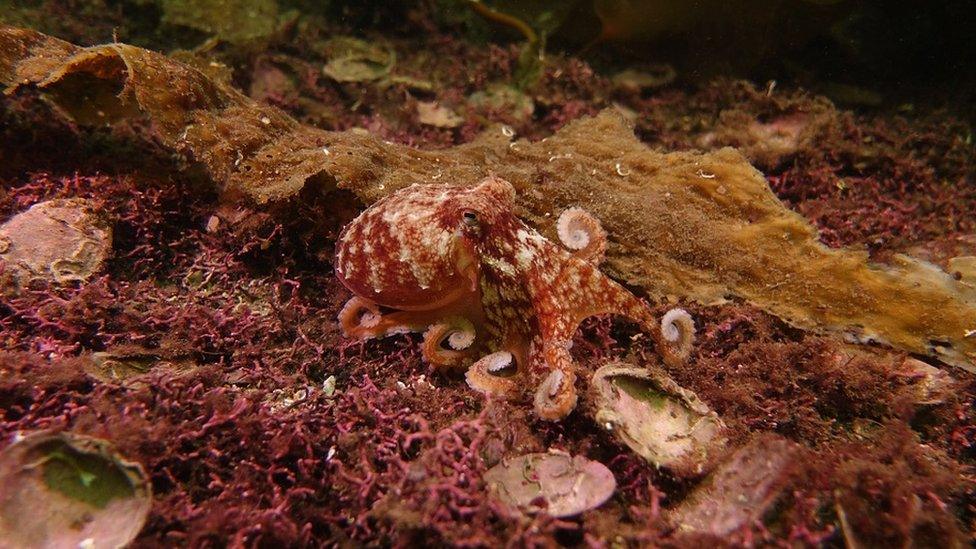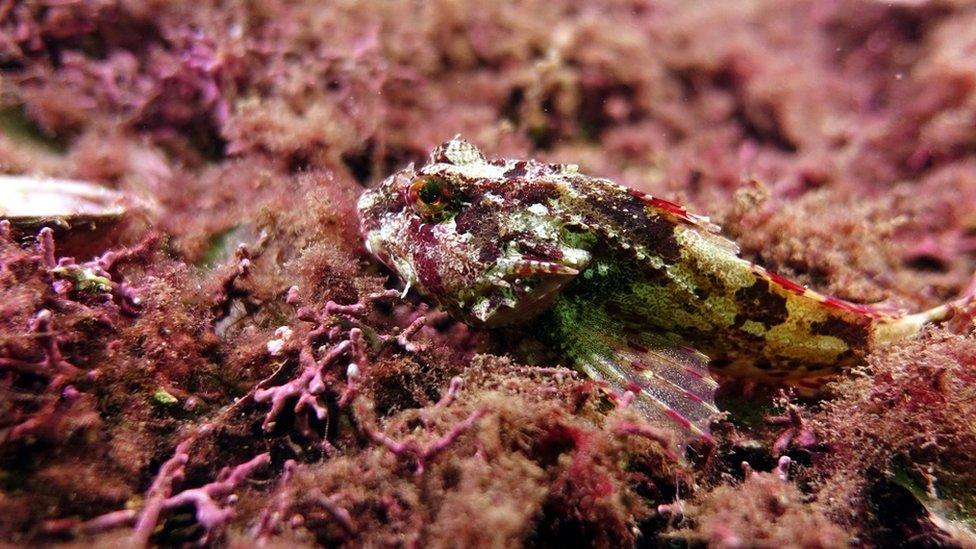Opposition to new fish farm in Wester Ross protected area
- Published

The Wester Ross Marine Protected Area includes habitats important to animals such as octopuses
A conservation charity has objected to a planned fish farm in a marine protected area in the Highlands.
The Scottish Wildlife Trust (SWT) said waste from the salmon cages could harm kelp forests and carpets of a hard seaweed called maerl beds.
Scottish Sea Farms is seeking a licence for eight pens in the Wester Ross Marine Protected Area (MPA).
It said a "full and thorough" environmental impact assessment had been carried out.
The company said its proposal for the site, near Horse Island in the Summer Isles, north of Ullapool, had also been reduced in size from an original 14 pens.
The Wester Ross MPA was set up to protect wildlife and also glacial features from the last Ice Age.
These features include huge scars on the seabed left by the movement of glaciers and piles of dropped boulders and pebbles.
Parts of the seabed are covered with maerl, a hard purple-pink seaweed.
There are also flame shell beds and mud burrowed by Norway lobsters.
SWT has lodged an objection to the fish farm with regulator the Scottish Environment Protection Agency (Sepa).
The trust said it supported sustainable aquaculture and wanted to see Scotland's fish farming sector operating in a way that was "compatible with a thriving marine environment".
Dr Sam Collin, of SWT, said: "The site proposed by Scottish Sea Farms is entirely unsuitable due to its proximity to important protected habitats.
"Scotland is facing a biodiversity and climate crisis. Protecting the health of Scotland's seas with an effective network on protected areas is increasingly important.
"Allowing this salmon farm to go ahead when it threatens so many of the features which should be safeguarded by the marine protected area would set a worrying precedent."

Scottish Sea Farms said it would take measures to avoid risk to sensitive habitats
Fish farming operated in areas before they were designated as part of an MPA, and Scottish Sea Farms said it already had farms in the Wester Ross MPA.
It said economic benefits of its proposed farm would include six new jobs and £3m spending with local and Scottish suppliers on farm infrastructure and equipment.
Scottish Sea Farms' Jim Gallagher said: "It's absolutely right that sensitive habitats and species be protected and we've taken great care from the outset to ensure there's no overlap between the proposed farm and priority marine features such as the maerl beds and other marine plants and animals they are home to.
"Several of our farms are already located in marine protected areas - our nearby farms at Tanera and Fada included - proving that, with responsible and sympathetic farm management, both can co-exist."
He added: "For now though, the consultation process is very much ongoing, with plenty of opportunity for community input. We welcome that input, we're listening and we're keen to address any concerns that might exist."